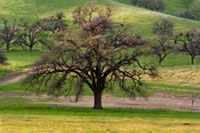Blog
5 TV Shows That Teach Us About Genealogy
We’ve all watched and enjoyed specific television shows dedicated to genealogical audiences, such as “Who Do You Think You Are?” and “Genealogy Roadshow”. But are you learning about genealogy from other TV shows? “Catfish” The investigation phase of each episode is filled with techniques to search the internet and social media for a person’s real identity and location. You may have had an ancestor who used aliases or whose images might be clues. “The Curse of Oak...
read moreResearching Your Wisconsin WWI Ancestors
When you are researching Wisconsin WWI soldiers, you can use the Wisconsin Veterans Museum’s World War I Database at the Wisconsin Veteran’s Museum website. You can search by Name, City, County, Unit, or Branch, or any combination. Wildcard characters do not appear to be supported, but entering parts of the last name did return some results. For example, entering “Back” in the last name field returned last names like “Backes”, but also names like “Alaback” that have the...
read moreDigital Maryland
If you are researching Maryland ancestors, Digital Maryland may be a destination on the web for you. The mission of Digital Maryland is “to facilitate the digitization and digital exhibition of the historical and cultural documents, images, audio and video held by Maryland institutions.” It’s like having a catalog to what is digitally available in Maryland. There are great treasures like maps, city directories, and photos. Clicking on the links will take you to the digitized collections, hosted on the institutions’...
read moreResearching Missouri WWI Ancestors
As you may know from my lectures and book, it is important to find your WWI ancestor’s military organization. An online way to find out about your Missouri WWI Ancestors is to search the Missouri Digital Heritage website. When you are ready to search, Click on “Search the Soldier’s Records Database”, Scroll down to the search boxes or click here. There are records from many conflicts, from the War of 1812 to WWI. You can leave the selection at All. Be sure to enter the name as: Last Name, First Name PVT Acie...
read moreResearching Indiana WWI Ancestors
As you may know from my lectures and book, it is important to find your WWI ancestor’s military organization. An online way to find out about your Indiana WWI Ancestors is to check the Indiana United States Veterans of the Great War I. It is worth reading the home page about Indiana in the Great War. (Beware of the links on the right side of the page; they take you to other websites.) The links on the left are to WWI topics, which include information gathered from oral interviews conducted with Indiana WWI veterans. In addition to...
read moreResearching Soldiers who died during World War I
By all means, search the ABMC Burials and Memorials to see if the soldier rests in Europe. But, you may not find his name is in the database, and there may be more to the story. Individual Combat units were responsible for burying the deceased soldiers and marking the grave. Then the Graves Registration Unit was responsible for moving the deceased to U.S. cemetery graves. The 51st Pioneer Infantry History tells of GRU work. But, even if the deceased soldier was buried overseas, his remains may have been returned to the U.S. in 1920 or 1921....
read moreMaking A Findagrave Virtual Cemetery
Lately, many of my posts have been about WWI. So, I thought it might be time for a different topic. Building a virtual cemetery can be useful for collect information from a variety of cemeteries into one page. This is a great way to share information you have found about a family line (or even a WWI military organization). In FindAGrave, use the link in the upper right to go to your Profile Page. Scroll down until you see “My Virtual Cemeteries”. Click on add. Then you will be able to enter a name for your Virtual Cemetery, a...
read moreResearching Connecticut WWI Ancestors
Researching Connecticut WWI Ancestors Connecticut is a special place, filled with beautiful scenery and gorgeous fall colors. My years in Connecticut were spent studying and researching for my PhD. So, when I learned of some great resources for WWI research in Connecticut, I had to post them. The Connecticut State Library has an introductory page describing their holdings in the state archives. As you probably know, finding a summary for your WWI Veteran’s service is the key to unlocking more records about his service. The...
read moreInterview with Historian and Author Peter L. Belmonte
Recently, I had a chance to ask WWI Historian Pete Belmonte about his latest projects, history and genealogy. 1. What is your latest project? I’m continuing to research and write about immigrants from the Province of Cosenza, with Volume 3 almost finished. It’s a challenge on several levels. First, it is hard to find information for many of the men. Often the only indication I have that a man was a WWI veteran is the 1930 census which shows veteran status; but that’s not always accurate,...
read moreResearching Virginia WWI Ancestors
As you may know from my lectures and book, it is important to find your WWI ancestor’s military organization. An online way to find out about your Virginia WWI Ancestors is to check the WWI questionnaires posted at the Library of Virginia. For this example, I searched for a record for SGT Earle Davis Gregory. He was the only Medal of Honor winner in WWI from Virginia. Click on the name to find out more about the record. A window pops up with links to look at or download the survey pages This record is his personal survey. While...
read more


